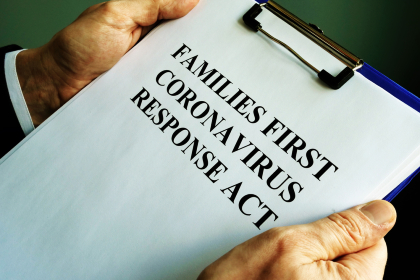Super Lawyers Honors 2025 Kotz Sangster Attorneys

Kotz Sangster is pleased to announce the recognition of our attorneys as 2025 Michigan Super Lawyers and Rising Stars.


In August 2020, a New York federal court issued a ruling that the Department of Labor’s definition of a “health care provider” in the Families First Coronavirus Response Act (“FFCRA”) was overly broad, and vacated that definition. The New York ruling also invalidated other parts of the FFCRA regarding intermittent leave and documentation regarding same. Until now, it had been unclear whether the ruling of the federal court in New York applied only to that jurisdiction, or if it applied nationwide. On September 11, 2020, the DOL announced that the New York decision applied nationwide. The DOL revised the FFCRA regulations and issued new and revised Q&A in response to these changes.
Importantly, the DOL announced that these changes will become effective immediately upon publication in the Federal Register on September 16, 2020. This means they are effective from September 16, 2020 through the expiration of the FFCRA’s paid leave provisions on December 31, 2020. See FAQ 103.
The revised rule provides the following updates:
As to the revised health care provider definition, the DOL significantly narrowed the group of employees who could be denied time off pursuant to the FFCRA. The revised regulations defining who is a health care provider includes two groups:
Notably, the DOL provided examples of who would not be considered a “health care provider” pursuant to the new regulations. As FAQ 56 instructs, “A person is not a health care provider merely because his or her employer provides health care services or because he or she provides a service that affects the provision of health care services. For example, IT professionals, building maintenance staff, human resources personnel, cooks, food services workers, records managers, consultants, and billers are not health care providers, even if they work at a hospital of a similar health care facility.”
The revised regulations provide that health care providers may include employees who work at a doctor’s office, hospital, health care center, clinic, medical school, local health department or agency, nursing facility, retirement facility, nursing home, home health care provider, any facility that performs laboratory or medical testing, pharmacy, or any similar permanent or temporary institution, facility, location, or site where medical services are provided. The DOL also notes that an employee does not need to work at one of these facilities to be a health care provider, and working at one of these facilities does not necessarily mean an employee is a health care provider.
FFCRA Q&A questions 101-103 are new, and questions 16, 21, 22, 56, 98 and 99 have been revised.
Note that it remains unclear if the revised regulations apply retroactively. Kotz Sangster will continue to provide updates as they become available.